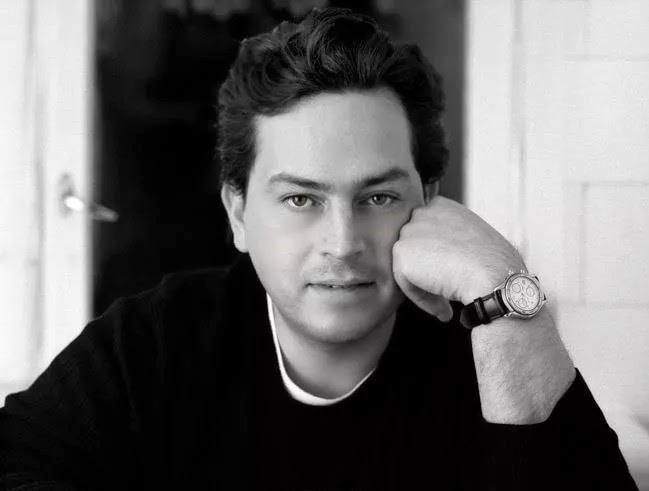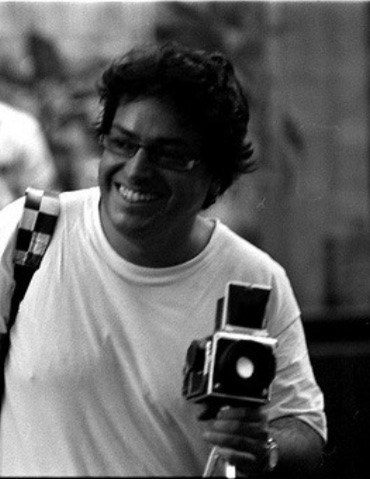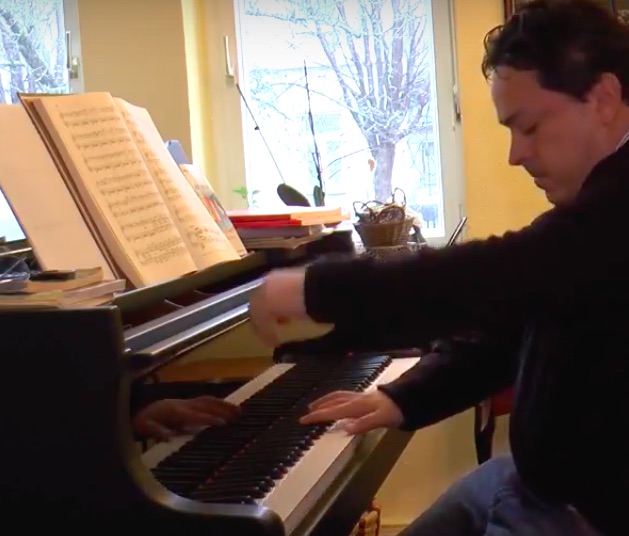
Dr. Luis Fernando Murillo is a genuine world citizen. He lived, studied and taught in numerous countries all around the world. Now he found his home in Hungary as a professor and also as a Stipendium Hungaricum student at ELTE, and he has big plans for the future too. - A stunning interview made by our new international alumni volunteer, Zaher Akkad, a graduating MSc. student of the University of Miskolc.
You are doing a post-doc at ELTE University and work as a professor at McDaniel College in Hungary. What made you choose Hungary?
Budapest, in my eyes, has always been more Viennese than Vienna - central to Europe yet on the periphery. Something of the 19th century hovers over its elegant buildings and tree-lined boulevards. Budapest is maybe the most romantic city in Europe, and for me, unreservedly, the most congenial and beautiful.
What did you expect before starting your research at ELTE University? Did you meet your expectations?
I thought, “Whatever happens, this is going to be different.” I have not been disappointed because I have experienced ELTE as a school with great scholars, who are also refreshingly unpretentious and approachable.
Being awarded a Stipendium Hungaricum grant to finance my research has been heartwarming. I am so thankful to Hungary and wish, somehow, to return the favour and to give back. I am grateful to ELTE for giving me the opportunity of supervising M.A. theses in the field of Semiotics, a stimulating and thought-provoking experience.
I am also very proud of the half dozen former students, who have been accepted to Oxford or Cambridge. I taught Comparative Literature to this remarkably motivated and intense group at the Milestone Institute at the invitation of my dear colleague Lance Hattat. The school, located in Budapest, now has the highest number of Oxbridge admission per year in the world. In one year in Budapest, I sent more students to Cambridge than in the preceding decades of my teaching career internationally.
Describe your current position and job responsibilities at McDaniel College. What things do you like in your work?
I became a Professor of Psychology at McDaniel College two years ago. I had previously worked for a decade as a university lecturer in Switzerland and welcomed the return to academia. The Budapest campus of McDaniel is part of our main college in Maryland - a nationally recognised university belonging to the group called “Colleges That Change Lives”. This is a community of American universities that pride themselves on the quality of their undergraduate teaching.
In keeping with the task of offering great support to undergraduates, I am proud to have recently been named careers counsellor at the college. This gives continuity to my previous activity as a therapist in China and the former Soviet Union.
I respect my fellow professors at the college. Among them are former rectors and heads of department at Hungarian universities as well as members of the Academy of Sciences, and many professors of other universities in America and Europe.
Have you been in Hungary before you started working here and what made you think about moving to it?
I first experienced Hungary in 1999. At the time, I was a guest researcher at the Karolinska Institute (Nobel Institute of Physiology) in Stockholm and was invited to give a lecture on the Brain and Consciousness at the Medical Faculty in Debrecen.
Although I felt very attracted to Hungary, I did not think that I would ever come to work here. For one thing, I already had an invitation to be a guest researcher at the École Normale Supérieure in Paris, and second, I confess, I was daunted by the difficulty of the Hungarian language.

How many countries have you lived in before? What are the things that make Hungary different from them in your opinion?
I have lived in fourteen countries for at least one year. Due to my father’s work, I changed countries a couple of times during childhood. As a teenager, I moved to Canada for my undergraduate studies at the University of Toronto, but lived for the longest time in Switzerland, where I taught Anatomy in German and French and did research on Neurophysiology. After that, for seven years, I lived immersed in Russian culture in three former Soviet republics (Russia, Ukraine, and Azerbaijan) and I emerged from that experience as an enthusiastic Russophile. Then I lived in China and Thailand.
You ask me how is Hungary special. The German poet, Goethe, raved about mingling the earnestness of the North with the spontaneity of the South. I find that Hungary succeeds in that marriage. Hungary is special because it is the place I call home and the country, where I would like to stay and become a citizen.
What do you think about university education and research in Hungary? Do you have any suggestions for it?
I am amazed by Hungarian studiousness. Hungary has great intellectuals. It is perhaps the most intellectual country I have lived in.
How do you describe your relationships with your colleagues and students in Hungary? Did you find any difficulties regarding that?
I love Hungarian people. In their typically self-effacing manner, they tell me I am idealising them, but in my perception, they are the kindest, warmest, most humble, and sharp-witted people –and they have a gift for abstract thought. I have had only positive experiences with my colleagues, mentors, and students. I adore a certain gravitas which drives discourse here towards philosophical ideas rather than small talk, but I like sharing with Hungarians their very irreverent sense of humour, which reminds me of my native Latin America. Hungary is Apollonian and Dyonisiac.
What is your level in the Hungarian language? What methods do you use to practice it? How far is it useful for you since you are living in Hungary?
In my first year here, I enrolled in the ELTE Intensive Hungarian Course. For a year, we covered 25 hours per week of grammar. Since then, I continue to study Hungarian every Saturday, I meet a lovely elderly friend from my synagogue to chat about everything under the sun, for example, Hungarian traditions, history, and society. We do this all in Hungarian, yet despite my efforts, my vocabulary is still limited.
Have you travelled within Hungary? Are there specific places you liked? What do you think of Hungary in general and Budapest in particular in architecture and culture sides?
With my McDaniel college colleague, Prof. Attila Pók, director of the Institute of History at the Hungarian Academy of Sciences, I have participated in a historical tour of the south of Hungary and the North of Serbia, including the city of Újvedék (Novi Sad), which was formerly Hungarian. We did this trip with a group of American college students from our main campus near Washington, D.C. The purpose was to introduce them to the history of this region.
Back in 1999, when I gave a lecture at Debrecen University, I got to visit that city and really liked its proximity to Ukraine, where I lived for three years, just as I like Budapest’s proximity to Vienna. In general, I love Hungary’s position at the crossroads of central, Eastern, and Southern Europe. Location is everything.
You ask me about Budapest. The elegance of its architecture and the barrage of constant concerts with the finest pianists, violinists, and conductors, make Budapest the most paradisiac city of Europe. In London, by contrast, transportation to a concert venue can cost several times more than what I pay here for a memorable recital or symphony.
What do you do in your spare time? I saw a video on YouTube where you were playing Beethoven's Sonate Pathétique. Have you found good circumstances for playing music in Hungary?
I studied piano at the State Conservatory in St. Petersburg and the Conservatory in Baku. Piano is my greatest passion. Franz Liszt, arguably the greatest poet of the keyboard was a Hungarian. It has been a privilege that Prof. Gabor Eckhardt and Prof. Balazs Szokolay, from the Liszt Academy, have given me the opportunity to take part in their piano Masterclasses. This has been the most exhilarating experience for me. I dream of one day being able to continue my studies with them at the Liszt Academy.

What are your future plans?
When I finish my second Ph.D. at ELTE, I would like to continue being a professor researching the History and Philosophy of Psychology and Psychoanalysis, perhaps in collaboration with Prof. Martin Kusch of the University of Vienna.
The dialogue between Psychology, Philosophy, and Literature profoundly interests me and has a therapeutic effect on our commodified, mechanistic world. I dream that I may be able to continue pursuing a broad interest in aesthetics and Critical Theory in Budapest, if possible, in collaboration with the Liszt Academy, where I would also love to be enrolled one day as a student. Most importantly, I dream of becoming a Hungarian citizen and being able to call Budapest my permanent home.
What advice do you have for students who are thinking about coming to Hungary for graduate or postgraduate study?
Budapest is a place of learning. Seize the opportunity to come and be inspired by all the knowledge and beauty you can!
The short biography of Dr. Luis Fernando Murillo
Dr. Luis Fernando Murillo is currently a Professor of Psychology at McDaniel’s College in Budapest, Hungary. At the same time, he is doing his second Ph.D. in Logic and Philosophy of Science at Eötvös Lorand University.
Dr. Murillo graduated from Trinity College at the University of Toronto in 1991, with a double major in Philosophy and Classics, and a minor in German. He received his M.A. in Philosophy and a Ph.D. in Neuropsychology from University of Fribourg in Switzerland. He taught Human Anatomy in Fribourg and Lausanne, and was a guest researcher at the Karolinska Institutet in Stockholm, and the Ecole Normale Supérieure in Paris, France. He was named as Professor of Psychology and Philosophy at the American College in Switzerland in 2000.
Dr. Murillo has published two books in Germany: one on the ‘Philosophy of Language in late Scholasticism’ and another on the ‘Evolution of Colour Vision’. He has co-authored an article on the ’Functional Architecture of the Visual Cortex’ with Oxford University Press. The National Council for Culture and Arts in Mexico, Luis’ birth country, awarded him a prize for a Spanish translation of Stefan Zweig.
He has also worked as an international teacher and college counsellor in Russia, Ukraine, Azerbaijan, Thailand and China, where he has published numerous articles and interviews with the Shanghai Daily Press.
His passion is classical piano, which he studied at the Royal Conservatory in Toronto and at the St. Petersburg State Conservatory in Russia.
The interview was made by Zaher Akkad.